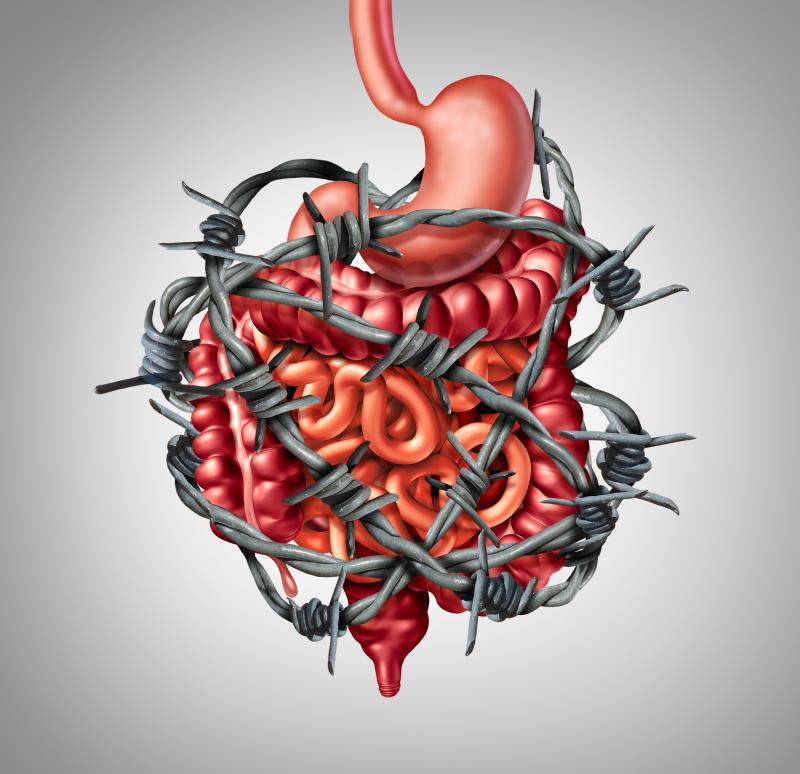
Neurophysiological factors appear to play a role in gastrointestinal (GI) symptoms in patients with irritable bowel syndrome (IBS), a recent study has found.
The study included 281 IBS patients (median age, 36 years; 74 percent female), who showed normal median anxiety and depression levels. Among the neurophysiology factors were psychological distress, colonic and small intestinal motility, and small intestinal secretions, among others. Patients were not categorized according to different IBS subgroups for analyses.
Psychological distress, as a neurophysiology manifestation of the central nervous system, was significantly correlated with GI symptom severity, as were variables associated with rectal sensitivity (p<0.05). No such effect was found for small intestinal motility and secretion, rectal tone response, or autonomic nervous system function.
A total of 193 participants were able to complete the Gastrointestinal Symptom Rating Scale, IBS version (GSRS-IBS) and were eligible for subsequent multivariate analysis. In general, GI symptoms more strongly correlated with specific combinations of neurophysiological factors than with the total neurophysiological score.
“The benefit of this approach relative to assessing the neurophysiological factors individually was modest, further highlighting the complexity of symptom generation in IBS,” researchers said.
Notably, two neurophysiological factors were present in every reduced neurophysiology score: central nervous system function, manifested as psychological distress, and visceral sensitivity patterns. This suggested that these factors were the most crucial of GI symptoms in this cohort.
“Further studies with an expanded range of neurophysiological variables of importance for symptom generation in IBS can be considered,” researchers said.